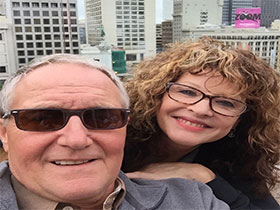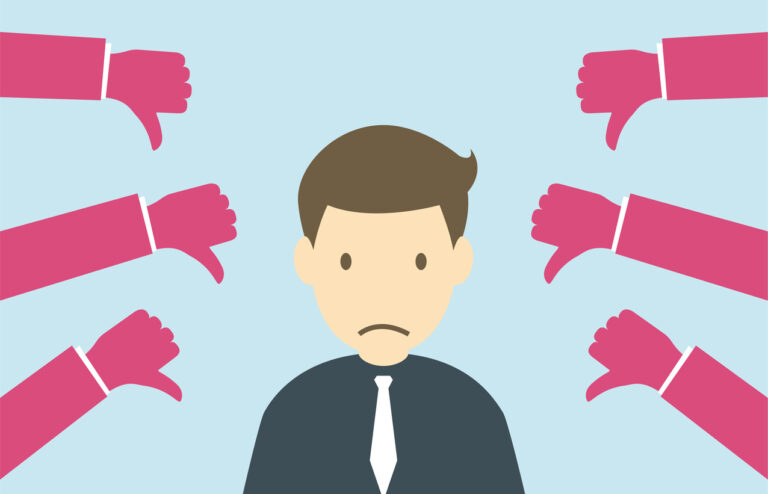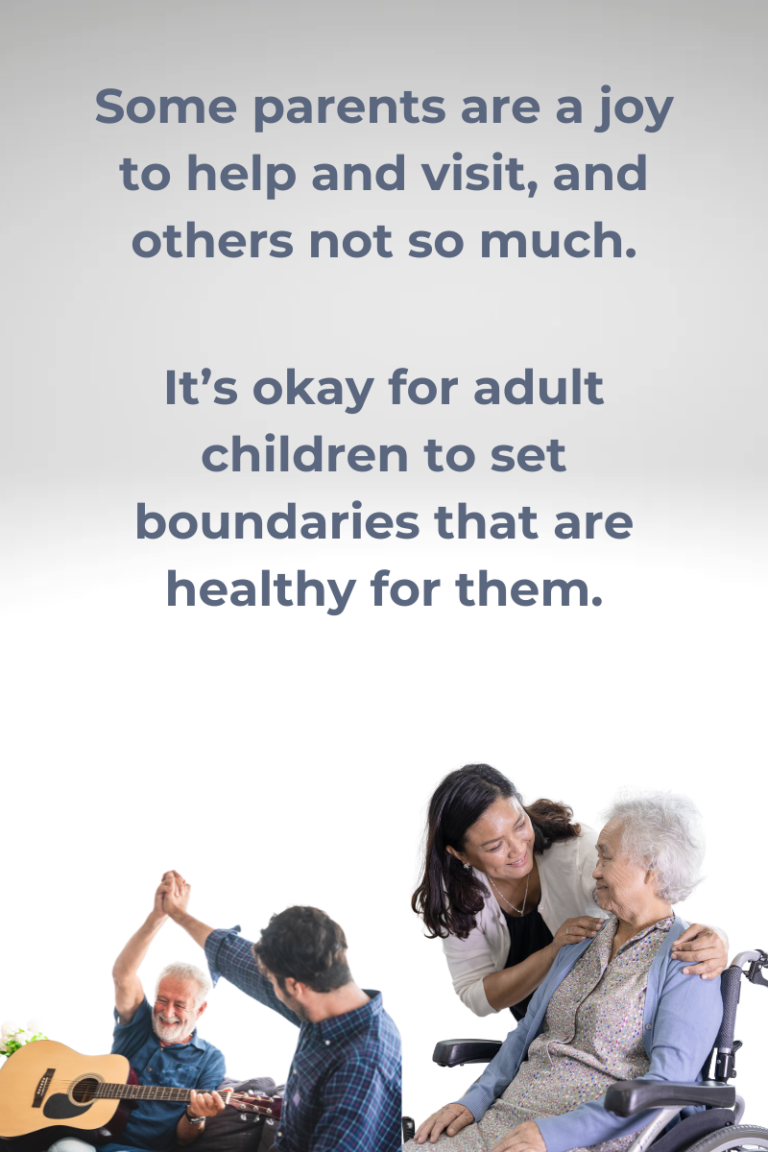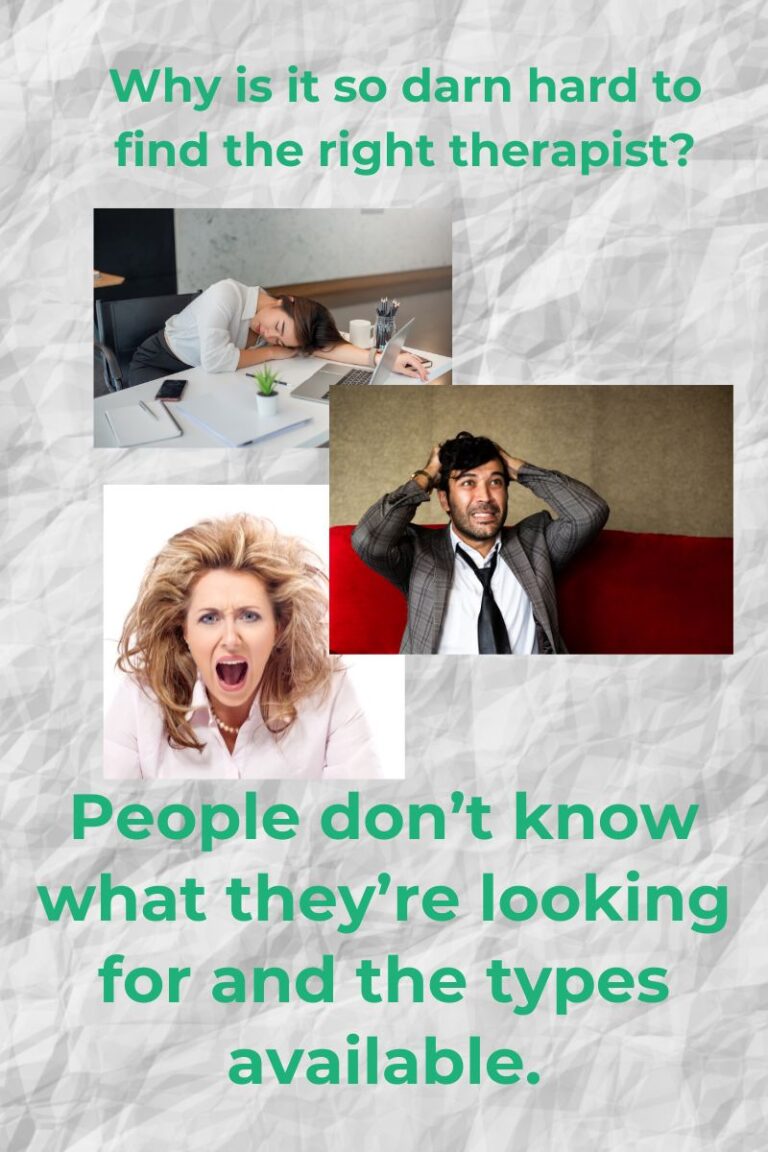Why Controlling People Don’t Know They’re Controlling.
They Are Only Trying to Help Us.
Some of the biggest control freaks I’ve known have no idea they are controlling — it’s fascinating. Yes, without self-awareness and the ability to see yourself, what you’re doing, how you’re doing it, and its effect on others, we are all doomed to experience their ridiculousness.
Take a look: Most people with this condition are arrogant enough to think they have figured everything out and the world would operate quite smoothly if everyone else would do as they suggest. Additionally, Czars of Control believe they are benevolent in sharing their deep knowledge and understanding with everyone else — they aim to help those of us who don’t know any better and to improve our lives, seeing themselves as the Mother Teresa of bestowing knowledge and wisdom and improving the world. Since they know what’s best for everyone, and should others dare not comply, the controller deems them stupid, noncompliant, disrespectful, or self-centered.
Years ago, a controlling person I was married to called me incalcitrant. I had to look it up.
Incalcitrant. def. Stubbornly refusing to obey authority or control and being resistant to change.
Are you kidding me? Of course, I refused to obey his authority and was very resistant to his kind of change, which was good for me.
Positive change can be extraordinary depending on what it is and if you desire it, but to be commanded to change or obey is beyond the pale. However, to a controlling person, if you do not meet their standards and demands, they make up that something is wrong with you, and you will be met with contempt and viewed as a stubborn malcontent. Some will throw you through the goalposts of life because of a lack of compliance when they were the ones who knew zero about practicing healthy boundaries and what is their business and what isn’t.
The ridiculousness of control.
Yep, I know a lot about this stuff. As a student of obnoxious and controlling individuals, I have had a lot of professional help over the years; I have an education in family and mental health, I have visited with thousands of people over 20 years in the counseling arena, and my family’s middle name was Control, so I can smell a controlling person moments after they enter a room. When my husband asks about my day, I sometimes tell him I wrestled a few bears, referring to encounters with controlling people like Roger.
“My wife doesn’t listen, and I’m sick of it,” said 70-year-old Roger, sitting on the chair with his arms crossed high on his chest.
“Do you mean she doesn’t listen, or do you mean she doesn’t do what you’re telling her to do?” I asked.
“Um, yeah,” he responded. “If she’d just do what I tell her, there’d be no problem.”
“So you’re telling me you’re controlling.”(His wife starts to smile and nod.)
“What? No. I am telling you, my wife doesn’t listen.”
Yes, the world would be great if we all would do what a controlling partner or person wants us to do. It’s so simple, the little things that matter. Why won’t we all comply? What’s wrong with us?
Why do controlling people often say their partners don’t listen?
When someone like Roger says that Person A won’t listen, it is often, but not always, code for “I can’t control them,” as in they have control issues. Other reasons for not listening are tuning out people who waste air time flapping about nothing — I call them flappers — and an ability to dissociate and take your mind out of your body and put it elsewhere for various reasons. This talent can come in handy when used for the right reasons.
Most people listen and hear what a speaker says, and if they don’t respond, it’s usually because they quickly tune out, don’t agree with them, or don’t want to go along with whatever they’re saying. They choose not to say anything because they don’t want to get into it or argue about it at the end of the day. Why? Because controlling people are obnoxious and wear us down.
The non-response method of dealing with control freaks drives them crazy, which is why they complain to therapists about it. They process it negatively, telling themselves that Person A is doing something wrong, disrespecting them, or some other nonsense when none is true. That’s why Roger brought it up in marriage therapy.
Expectations.
Despite considering themselves world experts and Grand Poobahs on how people ought to be, the controlling person loads up their relationship cart with expectations of others without the other person even knowing it. Expectations have zero value without the second person’s agreement, pure and simple.
I’ll never forget sitting in a marriage therapist’s office with my last ex-husband, the one who called me incalcitrant and who traveled regularly for his job. He complained to the therapist that I did not have a hot bath waiting for him when he got home.
“You never told me you wanted a hot bath waiting for you,” I said, completely taken aback.
“If you loved me, you would know,” he ridiculously said.
“Sounds to me like you want a Geisha and not a partner,” chuckled our therapist.
This is a good example of how people make up things their partner should be doing and then get mad at them for not doing it when none of it has ever been communicated. I can’t believe I have to say this, but humans aren’t mind readers and must be told if something is wanted or needed. Jeeze.
Expectations of one adult to another are an enormous waste of time, as is wishing the person was different than what they are, but controlling partners are usually full of them. Think about how completely ridiculous it is: I have a variety of rules and guidelines in my head that I expect you to follow, or I’ll be mad at you. Who in the heck do these people think they are?
Ruthless
My oldest sister, Ruth, was a controlling person to the point of emotional abuse, but it took me 40 years to figure it out. She was 17 years older, and because she went to college the year I was born, we never lived in the same town or under the same roof. We weren’t close; we were from different generations, but in my childhood, I was people-blind and idolized her. In our family, Ruth was the model of how a person should be.
Fast forward 35 years when I was struggling in my marriage to my children’s dad. Still respecting her immensely, I decided to go to her for advice, something I had never done. I confided that my husband was critical, mean, cold, and not interested in intimacy. I was miserable and thinking of leaving, even if it meant being a single mom of two, and even though I wasn’t sure how I would support myself.
“Have affairs,” she said quickly. “You can’t divorce him; you just have to find happiness in others and leave it at that.”
“That’s even an option?” I thought, then immediately dismissed her advice as beyond ridiculous. It was the first time I thought something was off with her. When I imagined how the conversation would go, I thought she might say she wanted me to be happy or tell me something I could do that would magically end his distancing or some other words of encouragement, but I heard the opposite.
A year or two later, I reached the peak of what I could tolerate and asked my husband for a separation. We made a mess of it, got divorced, and I ended up becoming a therapist in part to figure out why. But one after-ripple of the divorce perplexed me; two sisters turned their backs on me in harsh judgment and sided with my husband. I honestly didn’t think families did things like that. I was so naive that I thought my family would rally around me and be loving and supportive.
My sisters, Ruthless and Martha.
“We can’t believe you’re doing this,” Martha, six years older than me, said. “You didn’t think of us and what we wanted. You hurt us; we loved him.”
Sure they did. Their version of love is finding generous and wealthy individuals to befriend and bask in the receiving end of all that. My husband was a surgeon, a mover and shaker in the community, made a lot of money, and picked up the tab for champagne and fancy meals whenever he was around. He embodied what my family valued the most.
As a result of my having the audacity to cause them such pain, they froze me out for years. Martha had bullied me since childhood, so her behavior was nothing new. Still, it was the first time Ruth had pulled away, and looking around at all the other narcissistic Bozos in my family tree, I began to examine the possibility that something may be wrong with my family members.
Years later, when I was in graduate school and learning about healthy relationships and family dynamics, I was sharing a hotel room with Ruth at a family funeral at her invitation, which I found to be an opportunity for clarity and understanding. Getting ready for bed that night, I asked her why she turned her back on me after my divorce.
“You asked for my advice and didn’t take it, so I washed my hands of you,” she said.
Jesus, I thought, that’s so harsh and shameless. One strike, you’re out for life. I had felt the advice, any advice, was a take-it-or-leave-it sort of thing. It never occurred to me that I was obligated to take a person’s advice, and it didn’t make sense. A few days later, I returned to school, told a few classmates about Ruth’s and my conversation, and asked if they ever considered advice binding.
“What?” said one. “Of course not, that’s ridiculous. It’s input, a suggestion, and more information to consider; that’s it. The person asking for advice gets to decide what action to take.”
I already knew that, of course. But why did Ruth think I had to do what she suggested? What was it about anyone that would make them ever think something like that?
Controlling Behavior.
A few ingredients make a person controlling. The backstory is often that the person had a chaotic childhood, had no control over their fate, and so decided that they would clamp down on their environment in the future as the best way to ensure safety. But Ruth attained her control freak ways another way, and she was only controlling about certain things. What she wanted to control had to do with vanity, money, and prominence, and the end goal was to do things important people would approve of so you could get accepted and possibly have access to the group.
It didn’t help that she was the firstborn child, and we lived in a town of the haves and have not. Our family was in the middle, and the goal was to get yourself into the haves somehow, by any means possible. Ruth was the family’s golden child, was beautiful and full of charisma, and she used her charms to climb the ladder to prominence and thought all her siblings should, too. Forgetting your own needs was her philosophy: throw yourself under the bus to attain the lifestyle and prominence.
This unspoken family plan was revealed whenever we went against the grain of moving up the social ladder or gave up access to it. Leaving my well-to-do husband, prominent in the community, went against everything they believed in, so I was criticized and ostracized for doing so. That is not only controlling, it’s abusive.
Even though all five of my parents’ children were soaked in toxic shame and the idea that they weren’t good enough, they all created masks to hide behind so no one would know. Ruth’s role was to be fun and charming to all of her friends, and with her family, she was the controlling boss, full of strong opinions, harsh judgment, and unbridled self-expression. All my siblings were that way.
I still remember her lining up her first husband and two daughters in her kitchen every Friday for a weigh-in, where she posted the numbers on the refrigerator. To this day, her 50 and 60-year-old daughters fret about their weight, bodies, and the shape of their and everyone else’s legs. It was so bad that I eventually banned the discussion of people’s legs in my home.
Back to the hotel room.
That night in the hotel room, I told Ruth I had learned that being authentic was the only path to health, and I was dedicated to that. She said she had learned the opposite. “I read a book when I was young that said to morph into whatever you need to be to get what you want,” she said. “That has worked for me.” She had read that book in the early 1960s.
I looked at her life. Married for the second time to a man who was an obnoxious asshole but a millionaire with a yacht, a multi-million dollar home on the bay, an airplane, and who spent money freely. He loved to travel and took her all over the world. My controlling sister couldn’t control him and had wanted to divorce him, but she took the advice she gave me 25 years previously — stay come what may, so you may have a life of prominence and wealth. I saw her as the ultimate sell-out.
In the end.
In the mid-2000s, Ruth was almost 70 and was diagnosed with ALS disease, which is probably the most dreaded diagnosis in the world. Even though we rarely spoke, I called and asked her what I could do to help, but her answer was not much, so I kept living my life several states away. I assumed that since our relationship had been frosty for years and she had others looking after her, I was not needed in any way and would not be a comfort, so I stayed away.
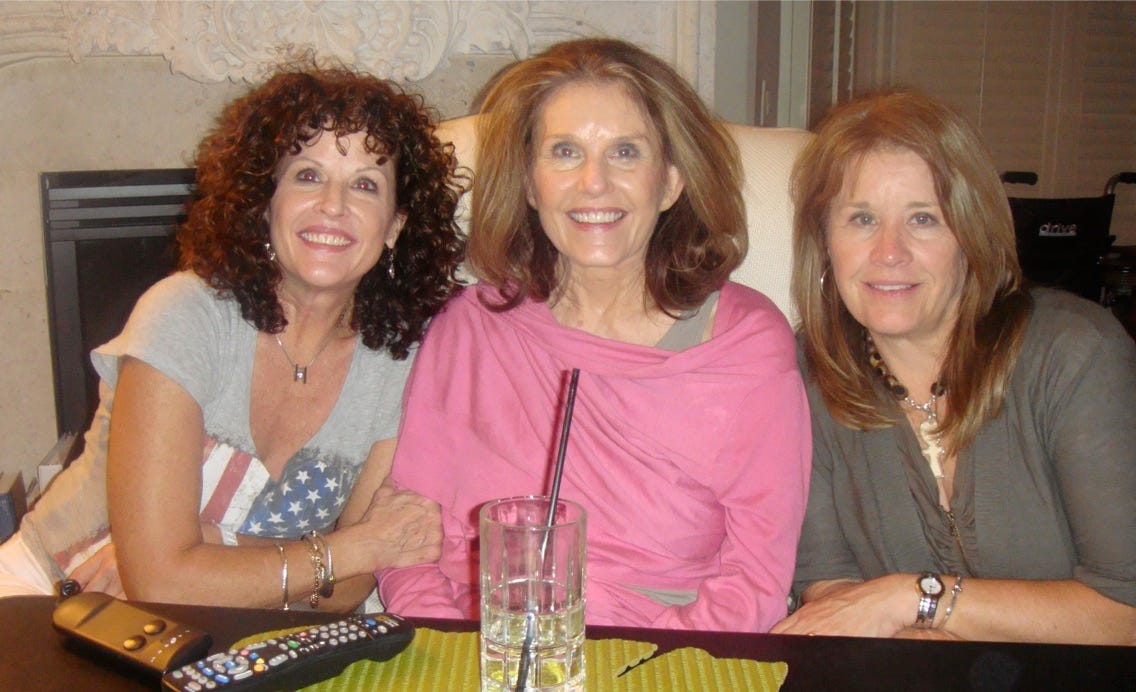
A few months before she died, Martha insisted that I visit, so I did. I asked her if she had had a spiritual awakening or any regrets or realizations about life due to her illness and impending death.
“Not at all,” she said. “When I die, it will be eternal darkness. I haven’t changed my thinking, I don’t regret my life, and I’d do it all the same if I had it to do over.”
Jeeze, I thought. She’s as cold and hard as ever.
Ruth died a couple of months later, and the first thing I noticed was that I felt nothing. I was sad for her suffering and what she went through, as I would be for anyone with an illness like that. But I noted that I no longer loved her, so there was nothing to mourn. My family had shown me over the years that they could not deal with a healthy Becky, and my authentic self, who didn’t play their game anymore, was rejected, criticized, and ostracized as a result. No wonder I felt nothing.
As I pondered it all, it occurred to me that one of the most controlling people I have ever known lost all control at the end of her life. She couldn’t move, had to rely on caretakers, and was ultimately at other people’s mercy. I wondered if the universe had designed it that way purposely to show her that if she weren’t going to become self-aware and stop controlling herself and others on her own, it would make it to where she was forced to stop controlling herself and others. The universe can be funny that way sometimes.
Life lessons
Controlling people believe they are doing the world a favor by teaching them how things should be, and they don’t see it as a controlling relationship. It is a betterment program. Self-improvement. Survival. Sometimes, it’s about safety or health.
“I tell my wife to exercise daily and keep her calories below 1200 because I love her so much and want her to be around a very long time.”
Oh, you are such a caring sweetheart. Are you kidding me?
Ultimately, the message is, “I am uncomfortable with you, so change yourself so I can be comfortable.” If you think of it that way, what they are doing becomes even more outrageous and ridiculous, and you might be able to understand that if that is what is going on, the onus is on them to take care of themself and learn how to be content when you set boundaries to maintain and be who you are. The onus is never on you to change so they can be happy.
………
If you enjoyed this, you might also like https://medium.com/unfaithful-perspectives-on-the-third-party/you-may-be-to-blame-if-your-relationships-are-toxic-9324e2c86de8
And this …https://medium.com/@doctorbecky/what-control-is-and-how-to-stop-it-cb884cb421a1
Becky Whetstone, Ph.D., is a licensed Marriage and Family Therapist in Arkansas and Texas* and is known as America’s Marriage Crisis Manager®.
She is a former features writer and columnist for the San Antonio Express-News, and is the author of “I (Think) I Want Out: What To Do When One Of You Wants Out” published by HCI Books, distributed by Simon and Schuster, and to be released February 4, 2025.
She has worked with thousands of couples to save their marriages. She can work with you, too, as a life coach if you’re not in Texas or Arkansas. She also has a YouTube Channel called Marriage Crisis Manager where she talks about relationships. She has a telehealth private practice as a therapist and life coach via Zoom. To contact her, check out www.MarriageCrisisManager.com. Also, here is how to find her work on the Huffington Post. Don’t forget to follow her on Medium so you don’t miss a thing!
- For licensure verification, find Becky Whetstone Cheairs.
- Marriage Crisis Manager is an Amazon affiliate and may receive a small fee if you purchase recommended books from our links at no extra cost to you.

